Committees

Jon Odorico
Dr. Odorico is Director of the Pancreas and Islet Cell Transplantation Programs and Professor in the Department of Surgery, Division of Organ Transplantation at the University of Wisconsin-Madison School of Medicine and Public Health and UW Health Transplant Center. He received a BS in Chemistry from Duke University, and MD from New York University School of Medicine. He completed General Surgery training as well as a post-doctoral research fellowship, at the University of Pennsylvania and Abdominal Organ Transplant Fellowship at University of Wisconsin. Dr. Odorico performed pancreas, islet and kidney transplants. He has an active, extramurally funded research laboratory that focuses on beta cell differentiation from pluripotent stem cells. He has previously served as President of IPITA and Chair of the UNOS Pancreas Committee. He is also the scientific co-founder of Regenerative Medical Solutions, Inc and directs the Human Islet Core at University of Wisconsin, funded through the Integrated Islet Distribution Program and NIDDK.
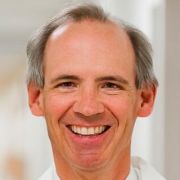
James Markmann
Claude E. Welch Professor of Surgery, Harvard Medical School
Clinical Director, MGH Transplant Center
Surgical Director, Liver, Pancreas and Islet Transplantation Programs
Co-Director, Center for Transplantation Sciences, MGH
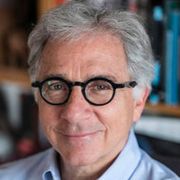
Doug Melton
Douglas Melton, co-director of HSCI, is the Xander University Professor at Harvard and an Investigator of the Howard Hughes Medical Institute. He earned a bachelor's degree in biology from the University of Illinois and then went to Cambridge University in England as a Marshall Scholar. He earned a BA in history and philosophy of science at Cambridge and remained there to earn a PhD in molecular biology at Trinity College and the MRC Laboratory of Molecular Biology.

James Markmann
Claude E. Welch Professor of Surgery, Harvard Medical School
Clinical Director, MGH Transplant Center
Surgical Director, Liver, Pancreas and Islet Transplantation Programs
Co-Director, Center for Transplantation Sciences, MGH
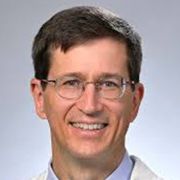
Michale Rickels
Michael R. Rickels Michael R. Rickels, M.D., M.S., is the Willard and Rhoda Ware Professor in Diabetes and Metabolic Diseases in the Division of Endocrinology, Diabetes and Metabolism at the University of Pennsylvania Perelman School of Medicine in Philadelphia, Pennsylvania. Dr. Rickels serves as Medical Director for the Pancreatic Islet Cell Transplantation program at the Hospital of the University of Pennsylvania, Director for Translational Research within Penn's Institute for Diabetes, Obesity & Metabolism, Director of the Radioimmunoassay & Biomarkers Core for Penn’s Diabetes Research Center, and Associate Director for Penn's Center for Human PhenomicScience. Dr. Rickels conducts patient-oriented diabetes research that aims at understanding the pathogenesis of different forms of diabetes and the in vivo mechanisms of new diabetes treatments, and is in particular focused on counterregulatory mechanisms in the defense against hypoglycemia and islet function and replacement in type 1 diabetes and pancreatogenic forms of diabetes including cystic fibrosis-related diabetes. This work has been continuously funded by the National Institutes of Health. Dr. Rickels has served as an elected councilor for the International Pancreas and Islet Transplant Association.
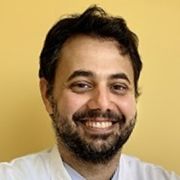
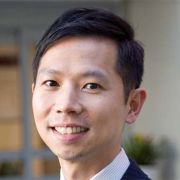
Albert Hwa
Albert Hwa, Ph.D. is a graduate of Cornell University, where he earned a bachelor's degree in Chemical Engineering. Dr. Hwa received his PhD in Biological Engineering at Massachusetts Institute of Technology. Dr. Hwa had extensive experience in research and development program planning and implementation while at JDRF, and has been involved in managing large research consortia, including the European Consortium for Islet Transplantation and the Islet Transplantation Program in Australia. He was the founder of the JDRF Encapsulation Consortium (now the Beta Cell Replacement Consortium). He was the Operations Director for Joslin's Center for Cell-Based Therapy for Diabetes (CCTD) and a Lecturer of Harvard Medical School. Under the mission of CCTD, Dr. Hwa managed and coordinated the Boston Autologous Islet Replacement Therapy program between Joslin, Harvard, Brigham and Women's Hospital, Dana-Farber Cancer Institute, and Semma Therapeutics. The program focused on deriving iPSC lines from diabetes patients and generating their insulin-producing cells as a personalized treatment for diabetes. He is now a program director within the Division of Diabetes, Endocrinology, and Metabolic Diseases (DEM) at NIDDK. Within the Division of DEM, his grant portfolio includes studies that focus on the development and regeneration of the pancreatic endocrine compartment, as well as the application of this knowledge in stem cell differentiation and regenerative medicine. In addition, he participates in the Human Islet Research Network (HIRN), which organizes and supports collaborative research related to the loss of functional beta cell mass in type 1 diabetes. He is also part of the NIH project team for the Tissue Chip 2.0 Consortium, and serves as the project scientist for the Microphysiological Systems for Modeling Diabetes (MPS-MOD).
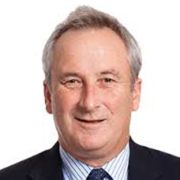
Tom Kay
Professor Tom Kay is Director of St Vincent’s Institute in Melbourne, head of the Tom Mandel Islet Transplant Program and Chief Investigator on the BANDIT clinical trial and the JDRF Australasian Type 1 Diabetes Immunotherapy Clinical Trials Network. He is President-elect of the International Pancreas and Islet Transplant Association. Tom is a clinician-scientist with expertise in endocrinology and clinical immunology. He holds grants from the National Health & Medical Research Council (NH&MRC), The Medical Research Future Fund (MRFF) and the Juvenile Diabetes Research Foundation (JDRF). His work as a type 1 diabetes researcher is focused on islet transplantation and immunotherapy research. The aim is to challenge insulin replacement therapy for diabetes by introducing new treatments based on disease mechanisms.
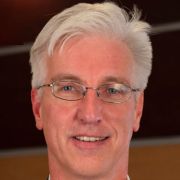
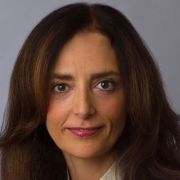
Esther Latres
Scientist with extensive expertise in the biotechnology industry and research foundations translating molecular discoveries in muscle wasting, immune and metabolic disease into novel protein and cell-based therapeutic strategies. Team leader in target discovery, validation of molecular candidates, and early drug development. Implemented research-based strategies and directed preclinical evaluation of novel protein therapeutics for entry into clinical development. Proficient in coordinating scientific collaborations within internal teams, external industry partners, patient advocacy groups, and academic group leaders..
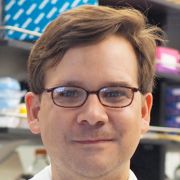
Jeff Millman
Dr. Jeffrey Millman is currently an Professor of Medicine at Washington University School of Medicine. He received his Ph.D. from MIT and completed his postdoctoral training at Harvard University. His current research is focused on synergizing both biomedical engineering and cell biology approaches to use stem cells for the study and treatment of diabetes. He is developing new approaches for the differentiation of insulin-producing islets from stem cells and improving their utility for cell replacement therapy and in vitro disease models. His innovations have been licensed to biotechnology companies in the diabetes space and resulted in ongoing clinical trials. Dr. Millman previously served as the vice president of research at Sana Biotechnology where he oversaw the preclinical development of hypoimmune stem cell-derived islets for the treatment of type 1 diabetes. His laboratory is supported by the NIH NIDDK and JDRF, and his scholarship has been recently recognized by awards from the JDRF, American Institute of Chemical Engineering, and the Biomedical Engineering Society.
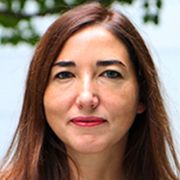
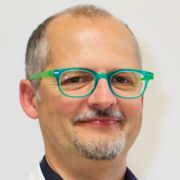
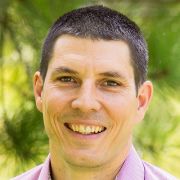
Holger Russ
The emphasis of Dr.Russ`s research is on understanding the underlying molecular and cellular mechanisms resulting in autoimmune type 1 diabetes (T1D) in humans, with a focus on immune tolerance mechanisms of the insulin-producing beta cells. During his career, Dr. Russ successfully worked on different aspects of T1D, which led to several original and important contributions to the fields of beta-, thymus- and stem cell- biology. Dr. Russ obtained his Ph.D. from Sackler School of Medicine at Tel Aviv University/Israel followed by postdoctoral work at the Diabetes Center at the University of California- San Francisco. He established his independent research program at the Barbara Davis Center for Diabetes at UC- Anschutz Medical Campus in 2016, where he also served as Director for the P30 funded Disease Modeling Core. Dr. Russ joined the Diabetes Institute at the University of Florida in the beginning of 2023 to further expand his research program on tolerance mechanisms and induction in autoimmune diabetes. His lab employs state of the art human stem cell technology and primary human cell culture with genome engineering approaches to model and treat patients suffering from (auto-) immune diseases, including diabetes. Dr.Russ has published more than 50 manuscripts in prominent science journals, holds several patents in the regenerative medicine space and is scientific co-founder of Tolerance Bio. Dr. Russ `s long term goal is to understand why autoimmune conditions develop, identify novel intervention and treatment modalities that can be effectively translated into the clinic, maintain a productive and extramural funded research program, and train and enable the next generation of scientists focused on regenerative medicine approaches.


